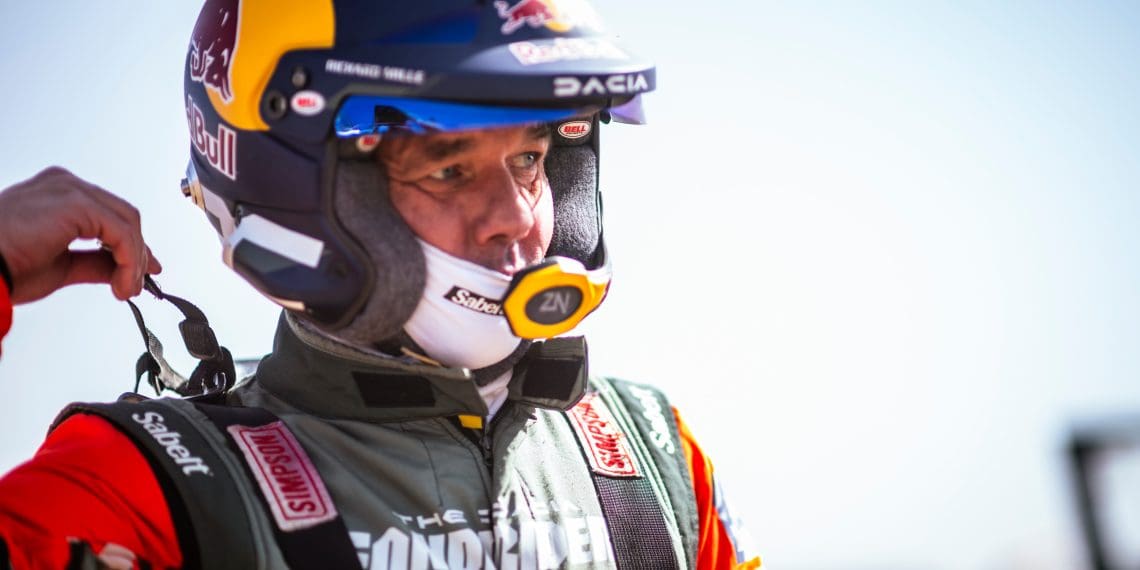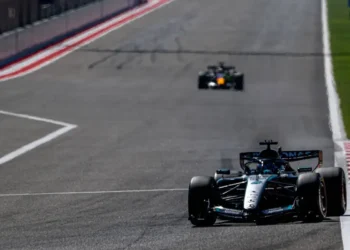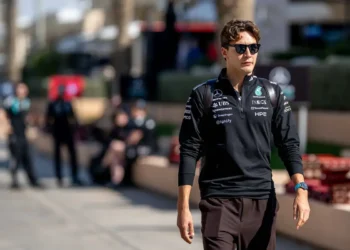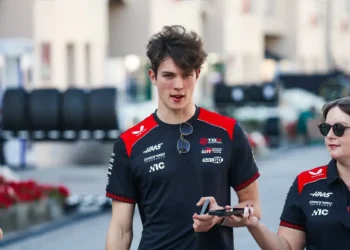The 2025 Dakar Rally witnessed a seismic twist as motorsport titan Sébastien Loeb was disqualified in a stunning ruling by the FIA. Loeb, competing for Dacia Sandriders, faced a brutal reality after his high-speed crash on Stage 3 revealed critical damage to his car’s roll cage, triggering safety concerns that left the FIA with “no alternative” but to pull the plug on his rally ambitions.
The Crash That Ended It All
Loeb’s rally hopes came crashing down after his car endured substantial damage during a fiery mishap in the unforgiving Saudi desert. The FIA’s safety inspectors discovered a bent section of the roll cage—a component deemed critical to protecting the driver in case of another accident. Their decision was swift and absolute: the car was ruled unfit to continue.
Jérôme Roussel, the FIA’s cross-country and regional rallies category manager, explained the disqualification: “The damaged section was an integral part of the roll cage, which includes the main roll bar and lateral roll bars. When any part of this structure is compromised, it is no longer compliant with safety regulations.”
Dacia’s Appeal COLLAPSES
Initially, Dacia signaled its intent to appeal the decision, citing what they believed to be an overreach by the governing body. However, the team shockingly withdrew their appeal just hours before Stage 4. Loeb, visibly frustrated, said the ruling was “hard to swallow” and lacked “solid arguments.”
The FIA stood firm, stating that safety takes precedence over all other considerations. “As soon as the roll cage is bent, it means the material is compromised. You cannot take risks when driver safety is on the line,” Roussel asserted.
A Harsh Precedent or Necessary Caution?
Loeb wasn’t the only casualty of the FIA’s rigid safety enforcement. Century Racing’s Laia Sanz, a Dakar veteran, was also sidelined due to a roll cage deformation of just 2mm—marking her first Dakar retirement in 15 years. The FIA’s zero-tolerance stance has sparked debates across the motorsport community about the fine line between ensuring safety and overly stringent regulations.
“This happens more often than people think,” Roussel stated, adding that numerous vehicles passed inspections and continued. “But when it comes to roll cages, there’s no room for compromise. If the material is damaged, the risk becomes too great.”
What’s Next for Dakar?
The FIA’s hardline decision may force teams to rethink their approach to Dakar Rally engineering. Critics argue that the rules could use more clarity to define acceptable levels of damage. However, Roussel believes creating such guidelines is easier said than done. “When a tube bends, the integrity is already compromised. Defining a ‘safe bend’ would be incredibly difficult,” he noted.
Loeb’s disqualification underscores the brutal nature of the Dakar Rally, where the world’s toughest terrain meets unyielding regulations. The French legend’s exit leaves a massive void in the competition, raising questions about how the FIA’s policies may reshape the future of cross-country rallying.










